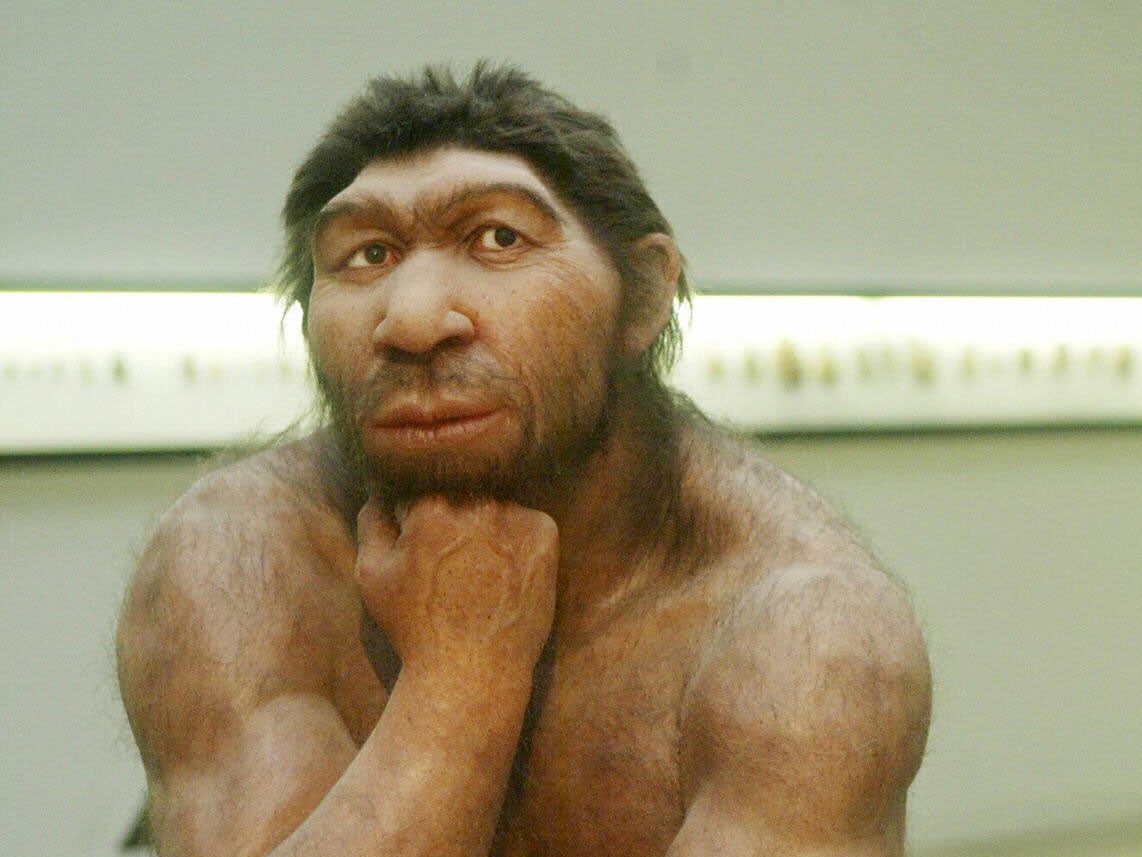Who were the world’s very earliest vegans?
Now more than half a million people aged 15 and over self-described vegans - but where and why did the diet begin?

As one of Britain’s fastest growing lifestyle movements, the vegan population in the UK has risen by 360 per cent over the last decade. Now more than half a million people aged 15 and over self-described vegans - but where and why did the diet begin? Who were the world’s very earliest vegans?
Archaeologist Dr Richard Leakey says our prehistoric ancestors started off on a plant based diet. “You can’t tear flesh by hand, you can’t tear hide by hand, and we wouldn’t have been able to deal with the food sources that required those large canines”.
This theory suggests that we turned to animal flesh out of necessity when there were shortages of our nut, seed and wild cereal staples. Hominins are considered to be opportunistic scavengers of meat where they could find it, while relying on plant based diets. Even in the Neolithic as early farmers, diets were still largely plant-based with meat as an occasional feasting food.
Biology professor Robert Dunn argues this is correlated by our closest related living primates, chimpanzees, for whom meat is a rare treat if eaten at all. This substantiates the claim of plant based digestion dictating the last 30 million years of gut evolution.
Archaeologists also debunk the recent fads of paleo and raw-food diets - as cooking in some form has been around since anatomically modern humans emerged and the emphasis on meat in the “hunter- gatherer” model is now largely omitted.
But when did veganism out of necessity become veganism out of principal?
Hindus, Buddhists and Jains have all long promoted plant based diets for ethical reasons. An early Jain called Parsva 877-777 BCE, taught followers about Ahimsa, one of the cornerstone beliefs meaning non-violence to living forms.
Jain monks often carry brushes to sweep the ground in front of them in order to avoid accidentally crushing insects when they walk. The practice of wearing muslin cloths over their mouths in case they swallow any insects is also observed.
Other notable vegan-leaning leaders include the Egyptian Pharaoh Akhenaten who banned animal sacrifice because he thought it was sinful to take away any given life by the Aten god. Taoism and Chinese Buddhism in the late 4th century stipulated that their monks and nuns were to eat an egg free vegetarian diet and the Japanese Emperor Tenmu banned the use of all livestock.
In ancient Greece, early veganism was referred to as “abstinence from beings with a soul”. In 500 BCE, the Greek mathematician Pythagoras advocated the idea that all animals had immortal souls which would be reincarnated after death. He shunned harming animals and along with the mythical poet Orpheus, also abstained from eggs. Apollonius of Tyana shared these strong views on animal rights and the Greek philosopher Plotinus even eschewed medicines made from animals.
Historian Dr Catherine Oliver suggests that 18th Century philosopher Jeremy Bentham is the earliest notable proponent of likening animal suffering to that of humans: “The question is not ‘can they reason?’ Nor, ‘can they talk?’ But, ‘can they suffer?’ Dr Oliver told The Independent that veganism today is being increasingly situated “not as a diet but as a social justice issue”.
The term “veganism” itself however, was coined much more recently. In 1944, carpenter Donald Watson and his wife Dot invented the word to mark the “beginning and end of vegetarianism”. Watson decided to become a vegan after he saw and heard the death of a pig on his uncle’s farm.
“I decided that farms, and uncles, had to be reassessed”. Watson lived to the age of 95 and predicted that at his funeral “there’ll be a smattering of people but there’ll be the spirits of all the animals I’ve never eaten. In that case it’ll be a big funeral”.
Donald Watson’s first newsletter was sent to just 25 subscribers. There are now over half a million self-ascribed vegans in the UK alone.
Thom Yorke, Moby and Woody Harrelson are just a handful of the celebrities now propounding the vegan lifestyle. Morrissey has even campaigned for General Motors to make vegan leather for car interiors. Whether you think it’s just a fad or that it has defensibly firm roots deep in human history, the first vegans certainly weren’t the last.
Join our commenting forum
Join thought-provoking conversations, follow other Independent readers and see their replies
Comments
Bookmark popover
Removed from bookmarks